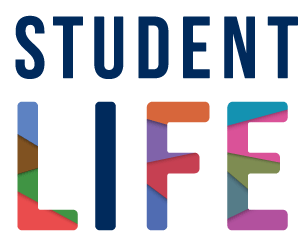Confidentiality of information is the foundation of an effective service for students with disabilities. As well as a requirement by law, we believe this practice generates a student’s trust and confidence.
At the time of initial registration with Accessibility Services and for each subsequent registration, we ask students to consent to the sharing/exchange of information as described in the POLICY: How your information will be used as part of the intake process.
Collection of personal information
Accessibility Services collects, stores and uses personal information and health information as is reasonably required to provide disability-related services under the authority of the University of Toronto, and in accordance with the Freedom of Information and Protection Act (RSO 1990, c.F.31).
- Accessibility Services collects information from students about their disability, functional limitations stemming from their disability and other disability-related information sufficient to support accommodation planning for the student. We also collect information about the student’s academic studies at University of Toronto, including academic status, and identifying information such as student number, name, birthdate, contact information and emergency contact information.
- Accessibility Services collects information primarily through the disability documentation Accessibility Services requires from students when registering with the service. Information is also collected directly from students through in-person, phone or video meetings, email communications and from their ACORN/ROSI student account.
- Students are required to submit their disability documentation securely to Accessibility Services via the Student Document Upload Portal.
- Students are advised not to submit their disability documentation to Accessibility Services using email as this medium does not guarantee secure transmission.
Protection of personal information
Accessibility Services is committed to maintaining confidentiality to the greatest extent possible when providing academic accommodation and related support services to students with disabilities.
- All University staff receiving information follow University policies and guidelines, the Freedom of Information and Protection Act (RSO 1990, c.F.31) and other legal requirements.
- We take steps to protect your personal information from theft, loss and unauthorized access, copying, modification, use, disclosure and disposal.
- We monitor and manage our privacy compliance to ensure that all staff protect your privacy and only use your personal information for the purposes to which you have consented.
- Student electronic records are kept on an encrypted, secured server maintained by the University of Toronto Information Technology Services. Only Accessibility Services staff are authorized access to these student records.
- We maintain student records for 10 years after the student’s last contact with the service. After the retention period, the student’s Accessibility Services file will be destroyed/deleted.
Use and disclosure of personal information
Accessibility Services only releases specific information on a limited and ‘as needed’ basis to other parties within the University who are helping us to administer accommodations. For example, Accommodated Testing Services (ATS) requires information on specific test/exam accommodations that are in place for a student in order for their staff to facilitate accommodated exams. ATS is not told any other information about the student other than test and exam accommodation information (i.e. they are not provided with any information about a diagnosis or particular disability related concern), just the minimum of what they need to know in order to ensure they can appropriately support the writing of the exam.
POLICY: How your information will be used as part of the intake process outlines the criteria we use in determining when and how information can be released from our office. If a circumstance were to arise whereby information is being sought by another individual that falls outside what the POLICY: How your information will be used as part of the intake process contemplates, we would not respond to that individual or party without express written consent from you (e.g. a partner, parent, etc.)
- We do not share information about a student’s disability diagnosis with anyone internal or external to University of Toronto without the student’s explicit consent.
- Students are not required (and are advised not to) share details regarding their disability diagnosis with anyone outside of Accessibility Services for the purposes of obtaining academic accommodations or supports.
- We do not permit indirect collection of personal information without the student’s knowledge. Parents or other family members who submit documentation to Accessibility Services on behalf of a student must copy the student’s UTOR email address.
Learn more about how the University collects, uses, and protects your information.
Request a copy of your Accessibility Services records
Email accessibility.services@utoronto.ca with your U of T email to request a copy of your Accessibility Services records. Requests must be made in writing from your U of T email account.
Please include in your request:
- Full legal name
- Date of birth
- U of T student number
- Current phone number
- U of T email or current personal email
We will respond to your request for documentation as soon as possible and provide you with the appropriate consent form for the release of your documentation.
Processing times typically vary between two to four business weeks. During peak periods (e.g. registration deadlines, final exam period), this may take longer. We will update you regarding the anticipated processing time at the time of your initial request.
Please note: Student records are available up to 10 years following last formal academic/enrollment contact.
*Requests for Academic Records (e.g. copy of diploma(s); official transcript(s), etc.) should be directed to the University Registrar’s Office.
Use of remote proctoring platforms
Privacy and security information notices for students:
Questions or concerns
Students can email accessibility.services@utoronto.ca and request an appointment to speak with the Director of Accessibility Services regarding any questions or concerns they have about how their personal information is collected, used, stored, shared or disclosed.




